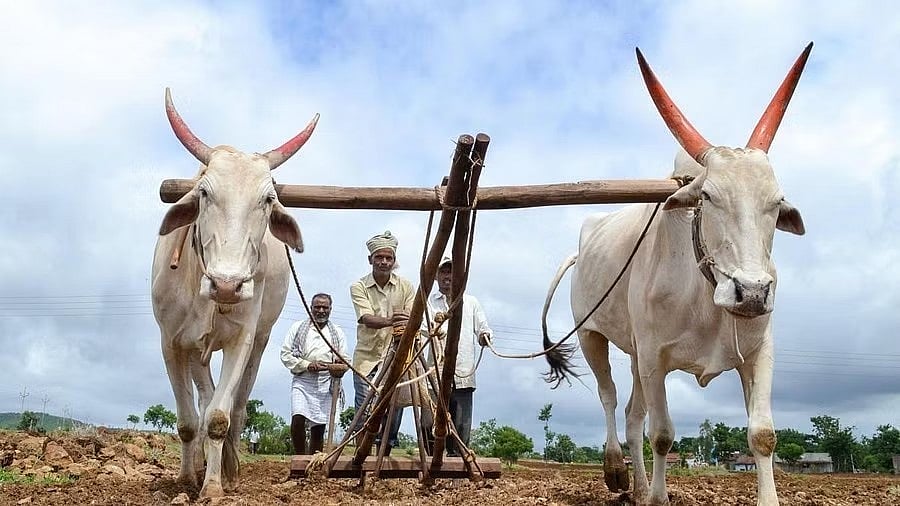
Representative image showing a farmer.
Credit: iStock Photo
Bengaluru: Farmers on Thursday demanded a performance review of Protection of Plant Varieties and Farmers' Rights Authority (PPVFRA), stating that the authority's functioning has weakened the seed sovereignty of the farmers while exposing them to litigation by corporate companies.
Under the banner of the Bharat Beej Swaraj Manch (BBSM), they said seeds and all its genetic materials are national collective biocultural heritage and cannot be treated as property of individuals or entities.
In a statement released after a workshop, the Manch demanded the government to withdraw the gene-edited rice varieties.
"BBSM strongly believes that gene editing and all other new genomic techniques (NGTs) are not required for Indian agricultural context, and in fact these NGTs are being used as tools for violating farmer’s rights, and community rights on traditional varieties and contaminating natural seed germplasm," it said.
Farmers collectively shape the bio-cultural heritage. Profit-oriented private sector takeover of the seeds, breeding programmes and release of proprietary seeds has been alienating biocultural heritage from natural and agricultural biomes and eroding seed knowledge embedded among farmer communities leading to its deterioration.
"This will in turn affect food security and sustainable agriculture, as seeds that can tolerate all kinds of biotic and abiotic stress are becoming rare. Knowledge generated in laboratories and research centres, while useful, cannot be substituted for community wide knowledge systems and traditions," said a statement by Jacob Nellithanam, Convenor of the Manch.
Noting that international agreements (WTO TRIPS, UPOV, ITPGRFA etc) have already influenced national policy and legal measures despite India's stance that rejects patents on all life forms, they said the techno-legal atmosphere promoted by such regimes will undermine farmers' rights in the name of science, research and innovation.
Further the PPVFR Authority has also undermined the collective seed sovereignty. For instance, by registering local varieties in the individual farmers' names and sometimes registering many seeds under a single farmer's name. "All these create rights which work against the collective rights of farming communities and collective biocultural heritage," it said.
The manch said the PPVFR Act, though claimed as the legal recognition of farmers' rights, "Using a proviso under this act, farmers have been sued by a company claiming damages," the manch said, demanding a complete revamp of the legal framework towards seed systems to restore farmers' rights.
The disconnect between farmers, who have openly-shared knowledge systems, and agricultural institutions where knowledge is commoditised has raised threats of contamination of seed systems.
"Public sector, through seed corporations and research institutes, has a role in regulating and ensuring that seed remains a public resource and remains uncontaminated from chemicals, genetic modification and gene editing," the statement said, adding that it is the responsibility of the government as well.